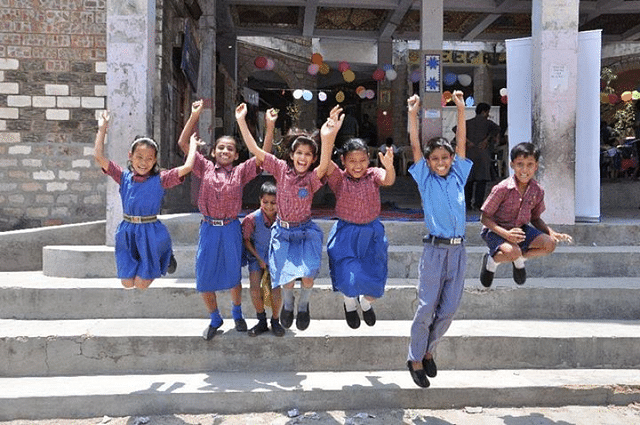
Government vs Private Schools : Ideology Trumps Reality
- Ideologies are often masqueraded as research and hence, trumps both reality and people, classic example being the Public Education System (PES) vs Private schools debate.
- Attack on private education is not same as improving state education.
Rohit Dhankar’s article ‘A Lesson in Hidden Agendas’ in The Hindu is a case study in ideology masquerading as research.
He opens by saying, “Public Education System (PES) and the Right to Education (RTE) do have problems, and they need to be fixed; so we need to find a way to make the system deliver in terms of better learning outcomes.” One would expect that the rest of the article to show the numerous ways to improve PES.
However, Dhankar uses the classic debating tactic of shifting the ground and spends all his energy in attacking private schools. He seems to have low respect for the readers who are expected to believe that attack on private education is same as improving state education.
However, his approach achieves the opposite, which is that even after spending a lifetime in education, no credible path to improve state education can be offered; more than 60 years of reforms has made government schools even more pathetic performers.
The people, even the poor, are leaving state schools in droves. The only avenue for the defenders of state education is to attack peoples’ choice. It is rather ironic that champions of people are compelled to denigrate the choices that people are making with their hard-earned money. This irony is completely lost on Dhankar in the glare of his ideology.
After all said and done, ideology trumps people.
The one idea he does offer to improve state education actually trivalises the problem itself. He says: “The issue of quality of education can be easily fixed in the RTE, perhaps there is a case to introduce some clauses on ensuring learning standards.” Is it just a matter of adding a few clauses in the law? How out of touch Dhankar is with the reality of Indian government and the education system; clearly ideology trumps reality too.
Let’s look at research evidence in the article. Citing a study, Dhankar says, “Students in private schools are less likely to belong to low caste groups, which means that they are less inclusive.” And go ones to add, “Therefore, the repeated claims of better learning in private schools are unfounded.” Which flaws in its certainty because the fore mentioned study is about inclusion and not learning outcomes.
A study based on India Human Development Survey shows that students are more likely to be ‘beaten’ in government than private schools. It also points to a negative correlation between income level and the probability of punishment in government schools.
Would Dhankar conclude from the study that government schools can never be improved and be closed down? Or would he suggest ways to deal with corporal punishment for the same? Should we find ways to make private schools more inclusive or just condemn them to a closure? If government schools should be given time and resources to do better, why aren’t private schools given a similar opportunity?
Here’s a gem of a claim that Dhankar thinks is based on research and not ideology, “But PES conceptually can be made better if managed well; while the private system has it in its DNA as to make profit on fees. For low-end private schools to do better on this account is impossible even in theory.”
Therefore, he concludes saying that private schools must be abolished in terms of their profit making inclinations. Maybe, Dhankar could tell this to Azim Premji, whose for-profit business pays for his ideological battles.
This article was first published in spontaneousorder.in.